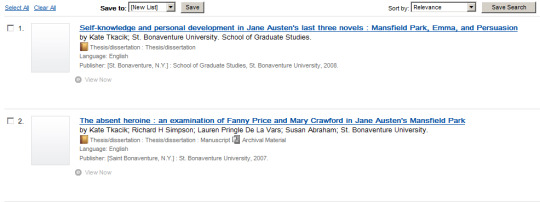#Theses
Explore tagged Tumblr posts
Text
Okay, here's another good one for you: “Put a Finger Down, Fanfic Edition!”: Fanfiction Participants on TikTok and Anonymity Collapse, a thesis by Katie Behling (2022). Before you poo-poo the TikTok aspect, Katie's interesting argument is that the lack of anonymity in many of these videos demonstrates a shift in the self presentation of fanfiction participants and the level of confidence that slash participants have in their engagement with the community. The thesis is freely accessible to everyone, no login needed (though please do note that Katie copyrighted it).
435 notes
·
View notes
Text
The fact that "here's a bunch of cool things I want to write about even though they're not entirely related" is not a valid thesis is a terrible problem
172 notes
·
View notes
Text
Title, Theses, Excrement ! http://newish.info/134141-title-theses-excrement
103 notes
·
View notes
Photo

#Martin Luther#Luther#95 Theses#Theses#Wittenberg#Commandments#10 Commandments#religion#religious#church#Catholic church#reform#reformation#God#Bible#The Mad Sonneteer#Bud Koenemund
64 notes
·
View notes
Text






"what is this show even about," people are always asking.
here you go!
31 notes
·
View notes
Text
sometimes pure unbridled rage overcomes me and i want to write a thesis paper
#i think i was born to be an english major#this is my prefered form of argument#theses#and countertheses#studies and research and shouting at each other through journals published in magazines and growing unfairly angry at others#not fandom content#personal#english major#english major rant#pure unbridled rage overcomes me#i must scream into the void#*throws a thick stack of papers into a black hole* READ A FRICKIN BOOK YOU IDIOT HOLE
31 notes
·
View notes
Photo

Melle de Boer (NL 1972) Contrary Theses (2019) Oil on canvas (120 x 140 cm)
#melle de boer#2019#dutch art#moving gallery#theses#modern art#movinggalleryutrecht#contemporary art
30 notes
·
View notes
Quote
v. “Water is heavy, it will make you feel light.” We are all born with rivers in our eyes. But by the time we have carved canals to fill them with, we often find that the very source has become dry.
Nav K (Brief theses on survival in volatile conditions and their practical uses, 5 of 5)
27 notes
·
View notes
Text
Another brilliant thesis for you

How do fanfic writers interpret elements of romance, sex, and sexuality in YA books and their screen adaptations? What are the implications of any alignments with or deviations from the source material?
On the good side, Alison Cummins finds that the fanfics were more likely to take on feminist perspectives of women’s agency and sex lives. On the not-so-good side, they still aligned with existing power structures by leaving whiteness and queerness unexamined.
#open access#fan fiction#fanfiction#fanfic#theses#honor theses#twilight#twilight saga#the twilight series#research#academic writing#jstor
305 notes
·
View notes
Link
Baby Boy: The Sociocultural Effects of Prolonged Male Adolescence
Check on It: The Gendered Dynamics of Male Spectatorship in Urban Public Spaces
Crazy in Love: The Diagnosis and Treatment of “Female Hysteria” During the Late Nineteenth Century
Naughty Girl: Disidentification and the Performance of Female Sexual Promiscuity
Cater 2 U: Female Subservience and the Reinforcement of Hegemonic Gendered Power Structures
Get Me Bodied: A Radical Critique of the Sex/Gender Binary
Freakum Dress: The Role of Consumerism in the Construction and Assertion of Female Sexuality
Videophone: Social Networking Technology and the Deconstruction of the Dominant Gaze
Run the World (Girls): Historical Perspectives on Global Female Leadership
Bills Bills Bills: The Dual-Income Model and the Reshaping of the Domestic Sphere
Soldier: The Hypermasculinization of U.S. Military Culture
Independent Women: Girl I Didn’t Know You Could Get Down (to Business in the Public Sphere and Still Be Expected to Perform Domestic Labor During the “Second Shift”) Like That
23 notes
·
View notes
Photo

#Martin Luther#Luther#95 Theses#theses#Wittenberg#church#religion#religious#protest#God#Jesus Christ#Jesus#Christ#Bible#Catholic#Catholic church#Roman Catholic#Protestant#reform#Reformation#tl;dr#too long; didn't read#meme#Bud Koenemund
33 notes
·
View notes
Photo

@yotamasters spotted #theses show at KOH. "Body in mint condition." #crawlandhaul #adventure #adventuremobile #explore #wander #offroad #offroading #tactical #everydaycarry #solidaxle #prerunner #overland #overlanding #crawler #rockcrawler #flex #flexing #4x4 #4wd #toyota4x4 #koh
#flex#theses#prerunner#explore#toyota4x4#everydaycarry#4wd#tactical#wander#offroading#solidaxle#offroad#overlanding#adventuremobile#flexing#koh#crawler#overland#adventure#4x4#crawlandhaul#rockcrawler
18 notes
·
View notes
Text
Ipp Launches Tender For Dissertations And Theses On The River ! http://newish.info/39177-ipp-launches-tender-for-dissertations-and-theses-on-the-river
18 notes
·
View notes
Quote
i. “If you aren’t making waves, you must be drowning.” There is a certain brand of bittersweet sadness in all things that are both the first and last. The similitude of such a moment or event is that of a rare and extinct species; there are simply no more of its kind. The sad part of it all is that you never really know this fact until the moment has passed, and you then come to realize that you never knew how much of it you should have savoured. Because any amount at all would never be enough.
Nav K
(Brief theses on survival in volatile conditions and their practical uses, 1 of 5)
26 notes
·
View notes
Photo

Why I talk about Austen so much...
17 notes
·
View notes